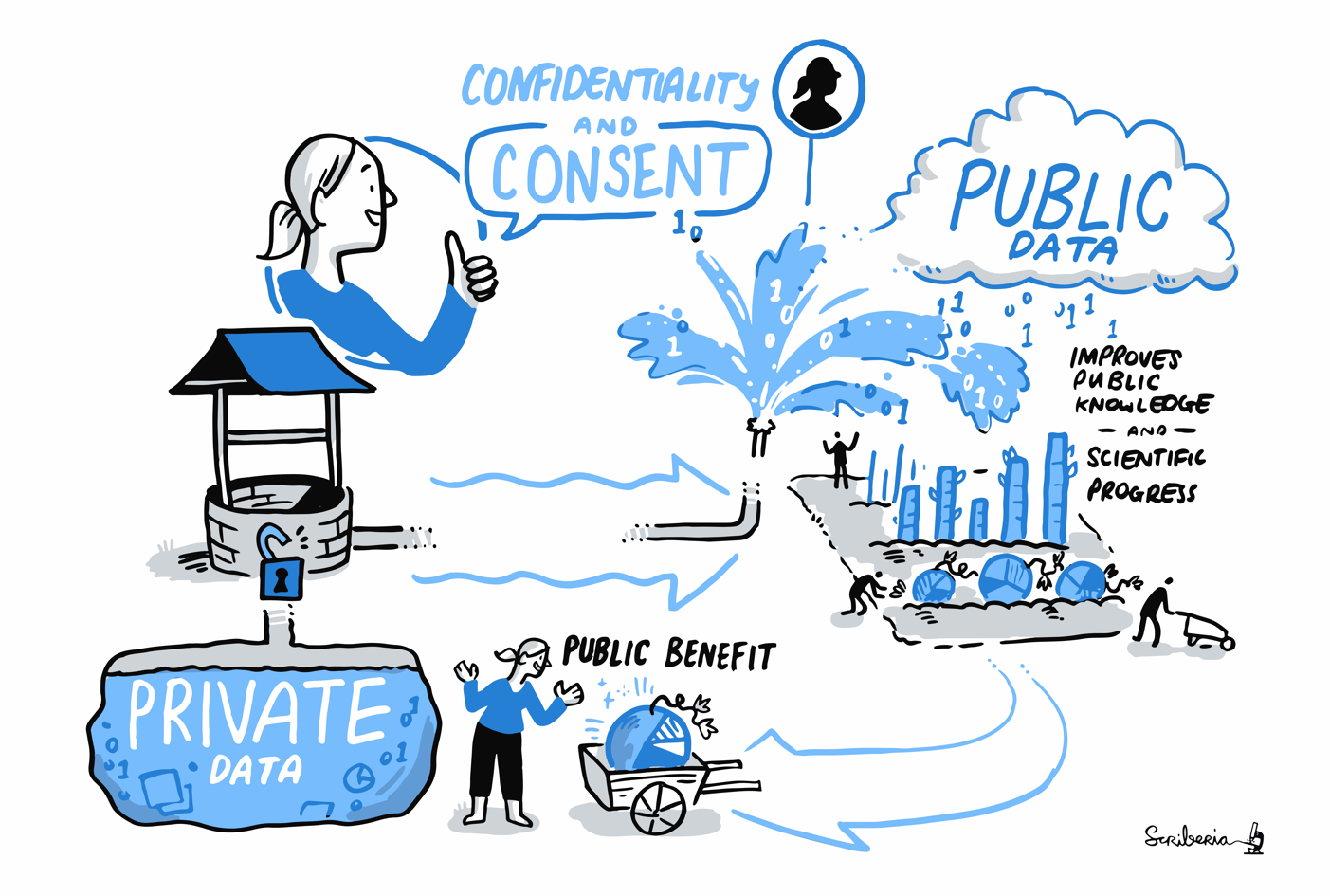Research Data Management
Managing research data consists of collecting, organizing, storing, and documenting data during and after the research activity. Research data management is an important part of the research, enabling reproducibility of results, ensuring the efficiency of research workflows, and increasing the impact and outreach of scientific research by making data FAIR (findable, accessible, interoperable, and reusable).
According to the amendment to Act No. 130/2002 Coll. on support for research, experimental development and innovation from public funds, research projects supported by public funds must include information on research data management. Grant providers often request researchers to create a data management plan that will ensure that all aspects of research data management are considered from the beginning of the research work.
Check the conditions for specific project calls and funding agencies on the tab PROJECTS AND OPEN SCIENCE

The Turning Way. 2024. Open and closed data for reproducibility. The Turing Way project illustration. In: Research Data Managment [cit. 2024-02-15]. https://the-turing-way.netlify.app/reproducible-research/rdm.html. Creative Commons Attribution 4.0 License.
Amendment to Act No. 130/2002 Coll. on support for research, experimental development and innovation from public funds
Amendment to Act No. 130/2002 Coll transports the European regulation on open data and its reuse in the public sector. Changes apply to all public project calls, international project calls and public contracts in research, development and innovation announced after 1 September 2022.
The most important impacts of the amendment
The project aid contract must now contain the following information (§ 9):
- Method of research data management
- Information on the availability and method of dissemination of research results and research data, if they have been produced with public support under this Act, the principle that research results and research data are not made public only in justified cases,
Obligation to publish information on research data in IS VaVaI (§ 12 odst.1). Obligation to publish the so-called metadata, not the research data itself.
Exceptions for not publishing information on data (§ 12 odst.3):
- where 'there would be a disproportionate interference with the right to privacy and personal data protection,
- the right to protection of business secrets,
- national security or other legitimate interests of the recipient'.
The recipient is obliged to review at least once a year for a period of 5 years from the end of the funding whether the conditions for not sharing data openly still apply.
Recipients are obliged to provide research data free of charge upon request (§ 12a).
The obligation applies to all research data that "are not protected under laws governing the protection of the results of copyright, inventive or similar creative activity or that are protected only by a special right of the database provider under another legal provision of which the recipient is the executor."
The obligation applies to research data created or used in research or development supported under this Act that has been paid for with public funds and at least 12 months have elapsed since the end of the support.
Exceptions for refusal to disclose research data: see exceptions above § 12(3). The recipient may also refuse to disclose research data in cases where the research has not been fully funded by public funds.
References
- Centrum pro podporu open science UK https://openscience.cuni.cz/OSCIEN-117.html
- Prezentace REGON, Open Science a EOSC (2. 11. 2022): s. 38-39, https://improve.muni.cz/regon
- Informace TAČR: https://www.tacr.cz/zmena-zakona-130-2002-sb/
